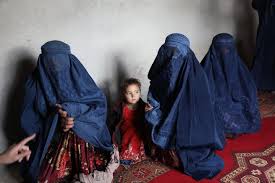
ICC Issues Arrest Warrants for Taliban Leaders Over Alleged Crimes Against Women

 :
| Updated On: 09-Jul-2025 @ 2:09 pm
:
| Updated On: 09-Jul-2025 @ 2:09 pmSHARE
The International Criminal Court (ICC) has issued arrest warrants for two top Taliban leaders—Supreme Leader Haibatullah Akhunzada and Chief Justice Abdul Hakim Haqqani—on charges of gender-based persecution of women and girls in Afghanistan. The ICC judges stated that there are “reasonable grounds” to suspect that both leaders were responsible for systematically targeting females based on their gender, depriving them of fundamental rights and freedoms.
According to the ICC, the Taliban regime has imposed severe restrictions on the rights of women and girls since regaining power on August 15, 2021, following the withdrawal of U.S. forces. These restrictions have included denial of access to education, limitations on freedom of movement and expression, and violations of privacy, family life, and religious freedoms. The court also noted that individuals were targeted for expressions of sexuality or gender identity that the Taliban viewed as incompatible with their policies.
The Taliban government dismissed the ICC’s charges as “baseless rhetoric,” asserting that it does not recognize the ICC’s authority. Taliban spokesperson Zabihullah Mujahid defended their governance, claiming it is rooted in Islamic Sharia law and has established justice in Afghanistan. The Taliban also accused the ICC of failing to act on the deaths of women and children in Gaza, framing the court as politically biased.
International reaction to the ICC warrants was largely supportive from human rights organizations. Amnesty International and Human Rights Watch (HRW) praised the move, describing it as a significant step in holding perpetrators of gender-based oppression accountable. Amnesty’s Secretary General, Agnes Callamard, emphasized that the announcement offers hope to Afghan women, girls, and others persecuted for their gender identity or expression. HRW called on the international community to support the ICC’s actions and assist in enforcing the warrants.
The court’s Chief Prosecutor, Karim Khan, initially requested the warrants in January 2025, highlighting what he called “unprecedented and ongoing persecution” of Afghan women, girls, and LGBTQI+ individuals under Taliban rule. The ICC confirmed that the crimes were committed between August 2021 and at least January 20, 2025.
Since returning to power, the Taliban has banned over 1.4 million girls from attending school, with the United Nations estimating that 80% of school-age girls (approximately 2.5 million) have been denied education. Authorities have also barred women from working in NGOs and restricted their access to public spaces, such as parks, gyms, and beauty salons. Additionally, a law known as the “vice and virtue” decree has prohibited women from singing or reciting poetry in public and mandates that their voices and bodies be concealed outside the home.
This case follows previous ICC action in 2024 when the court issued arrest warrants against Israeli Prime Minister Benjamin Netanyahu and former Defense Minister Yoav Gallant for alleged war crimes in Gaza, including the use of starvation as a weapon. However, enforcement of these warrants has been problematic, with some Western nations refusing to act. For example, Poland welcomed Netanyahu despite the warrant, and Hungary withdrew from the Rome Statute, which established the ICC. The U.S., not a member of the ICC, even imposed sanctions on ICC officials for pursuing Netanyahu’s prosecution.
Based in The Hague, the ICC prosecutes grave international crimes such as war crimes and crimes against humanity. However, lacking its own police force, the court depends on member nations to enforce its decisions, posing significant challenges in politically sensitive cases like this one involving the Taliban.